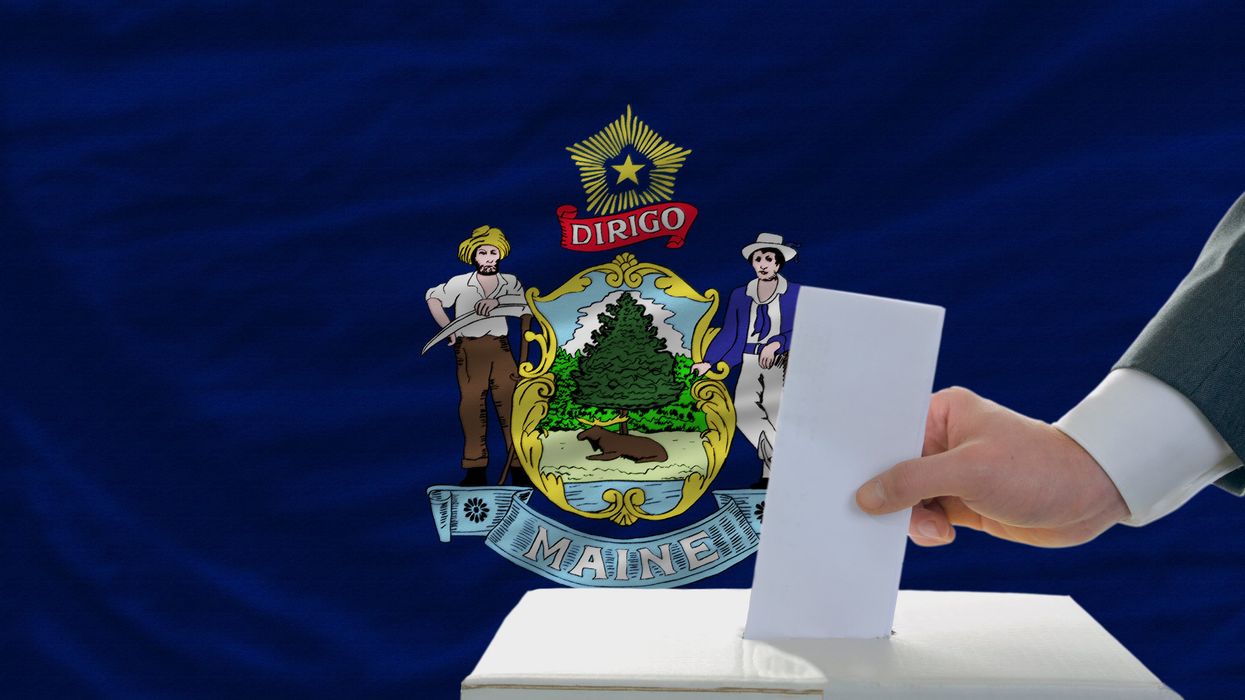UPDATE: This story was updated Thursday morning with new developments
The recent run of success for advocates of ranked-choice voting surged forward Wednesday, then unexpectedly stalled.
The Democratic-controlled legislature in Maine, already the only place where the system is used for congressional contests, cleared legislation that would make the state the first where ranked-choice voting is used in presidential contests.
But the lawmakers ended their regular session late Wednesday night without completing the final, procedural and almost always pro forma steps necessary to deliver the bill to Democratic Gov. Janet Mills, whose signature seems assured. As a result, the bill will remain in limbo until legislators return to Augusta, giving its Republican opponents time to mount a last-ditch effort to derail the measure .
A special session later this summer seems likely but is not guaranteed. So it's not clear whether the system will be in place in time to govern how Democratic convention delegates are allocated in March, when Maine is switching to primaries after a long run of presidential caucuses. If the bill becomes law, it would also apply to the awarding the state's four electoral votes in November.
"It represents an historic first," Rob Richie of FairVote, a prominent advocacy group for ranked-choice voting, said in anticipation of the measure's completion. "This is a tremendous victory for our democracy."
One reason the move would be so consequential is that Maine could then test the notion that RCV generally works against Republicans, a principal reason the idea is opposed by almost everyone in the GOP establishment.
To be sure, the system caused the defeat last year of a Republican congressman, Bruce Poliquin, who failed to secure an outright majority of No. 1 votes in the midterm election and then saw a lopsided share of the minor-party candidates' first-choice ballots redistributed to Democrat Jared Golden as the second choice.
But two years earlier, the reallocation of third-party votes could have had the opposite effect. Hillary Clinton carried the state with a 48 percent plurality, meaning the RCV rules would have been put in place. And her 22,000-vote margin over Donald Trump was less than the 38,100 votes won by the Libertarian nominee, Gary Johnson, who polling showed took the bulk of his support away from Trump. So there is a reasonable shot that Trump could have carried the state if voters had been allowed to list him as their second choice after Johnson.
From now on, a similar result statewide or in either of the state's two House districts would trigger this sort of instant runoff. (Maine and Nebraska are the only states where one elector goes to the winner of each congressional district.)
Final action in Maine would be the biggest win so far for RCV advocates. Last week, a panel in New York City voted to create a referendum this fall in which the city will decide whether to use the system in primaries and special elections. At least five cities will use RCV for the first time this fall in Michigan, Minnesota, Utah and New Mexico – although the city council in Albuquerque, the state's largest city, rejected this concept this week.
Maine would become the sixth state where Democrats use RCV for all or part of their caucuses or primaries. None of them used the system for picking presidential nominees four years ago.




















Marco Rubio is the only adult left in the room